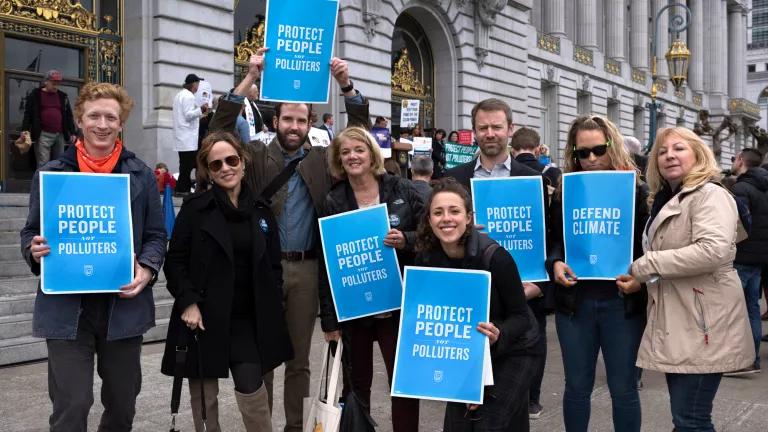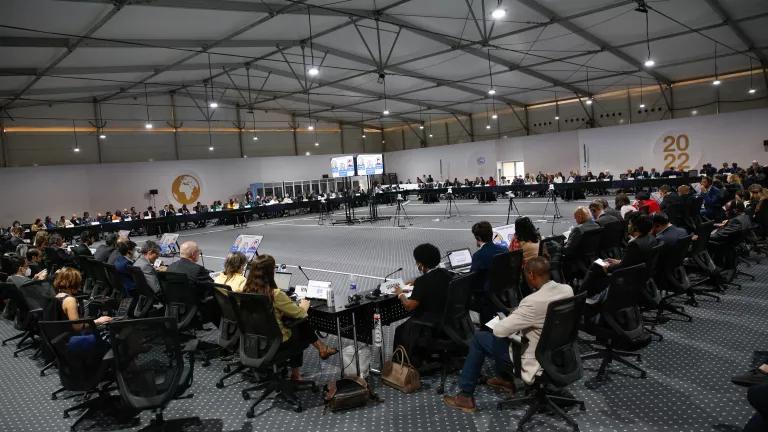
Latin American countries have been taking an increasingly active role in international discussions about tackling climate change—and for good reason: this region is one of the planet’s most vulnerable to the impacts of global warming, and 61 percent of Latin Americans believe climate change is the most serious global threat. After playing an important part in helping the Paris Climate Treaty advance during last December’s United Nations climate negotiations, many Latin America countries are now preparing for the signing of that treaty on Earth Day at the UN headquarters in New York. Encouragingly, several of the region’s leaders have announced their intentions to attend the event and/or sign the agreement. Although it is difficult to confirm who will be there and what will be said, we can expect Latin America to be well represented, based on their climate commitments, previous statements and current media reports. Here, then, is a quick summary of what we can expect from the region’s regarding on Earth Day:
Brazil has confirmed that government representatives will be attending the signing. This is encouraging and very important, since the impeachment proceedings against President Rousseff are dominating national attention right now. As a result, it’s worth asking to what extent—and how—Brazil’s climate change agenda will be impacted by these proceedings. Brazilian civil society groups have already said that the country’s emission reduction targets are not ambitious enough to contribute to the effort to keep the planet’s temperature from rising 2 degrees. If the government is unable to continue prioritizing climate action, Brazil could fall short of its targets. It merits repeating that the government’s confirmation of its presence in New York to sign the climate treaty is very encouraging.
Mexico is a country that certainly should be at the UN meeting. It has established itself regionally and globally as a climate action leader—first in 2012 when it passed the General Law on Climate Change, and again in March 2015 when it was the first developing country to submit its INDC before the climate negotiations in Paris. Several important events in Mexico have taken place since Paris, and they are helping the country shape how it will meet its climate goals. First, in late December, the government passed the Energy Transition Law, which is the piece of the overall energy reform legislation designed to help support the clean energy sector. Second, in March Mexico City experienced the highest levels of air pollution in over a decade, bringing into sharp focus the need to regulate the transportation sector. Third, the big winners in the country’s first-ever private energy auction, held in March, were wind and solar companies.
Argentina’s new President, Mauricio Macri, will be attending the treaty signing himself – and is presenting a stark contrast to his predecessor by doing so. He has said that climate change is one of the three themes or pillars of Argentina’s international policy (the other two are terrorism and reinsertion into the world) and he has also stated that the emission reduction targets that Argentina presented in Paris should be higher. A power auction in May is expected to help the renewables sector, although the rules and quotas are still under development. Interestingly, the new Energy Minister, Juan Jose Aranguren—who used to be an executive at Shell—has publically commented that it is cheaper to develop wind power than Argentina’s famous shale oil and gas reserves in Vaca Muerta. So this high-level Argentine presence in New York is a strong indication of the country’s future intentions to combat climate change.
Chile is another country that should be in attendance as the Climate Treaty is signed on Friday. As a leader in the region’s renewable energy growth, Chile has already enacted a number of policies to help meet its climate commitments. Chief among these are: a renewable energy law requiring 20 percent of the country’s energy come from renewable sources by 2025; a carbon tax imposing $5 per ton of CO2 emitted by stationary sources (i.e. power plants); and a power auction system that has been specifically—and so far successfully—reformed to even the playing field for renewable projects. The administration of President Bachelet has also created a new National Energy Policy and has promised an Energy Efficiency Law. Chile has been seen as one of the progressive countries when it comes to climate change, and so we can hope they will be present in New York to sign the Paris Treaty.
A few other important countries to note:
President Humala of Peru, President Morales of Guatemala and President Cartes of Paraguay have all confirmed their participation in the Treaty signing.
And, excitingly, Panama’s environment minister, Mirei Endara will be in New York to present the country’s much-delayed climate commitments to the UN and sign the treaty. Early reports find that Panama’s targets may include a goal of having 30 percent of the energy mix come from renewables by 2050.




